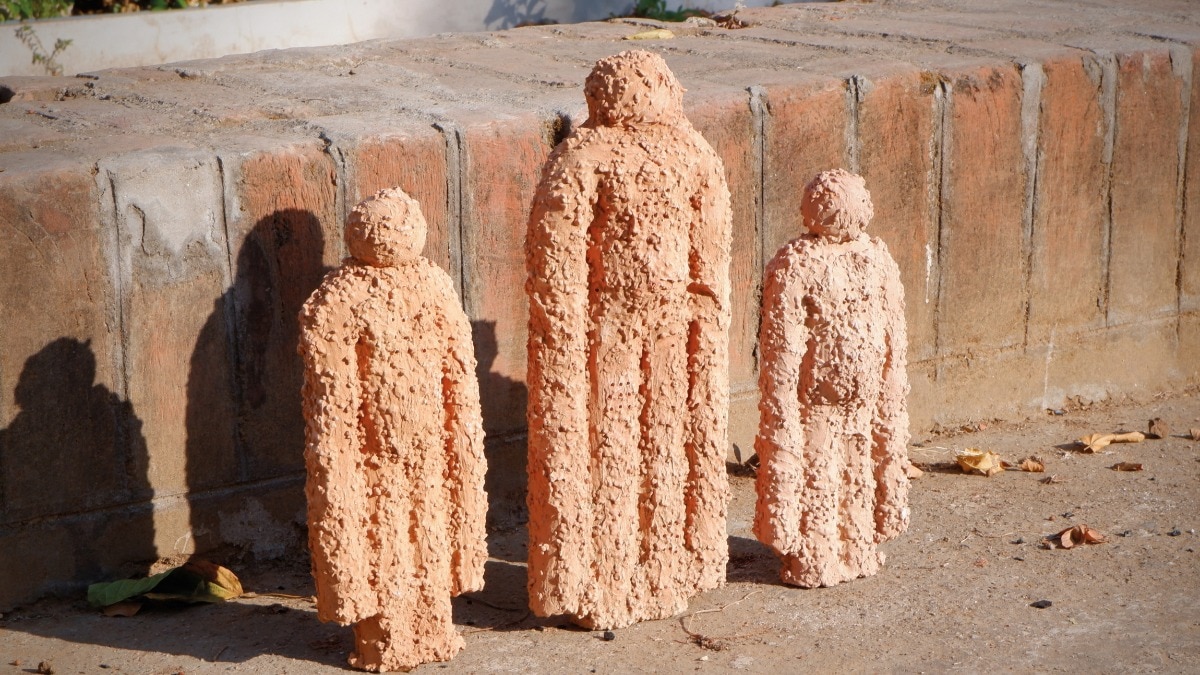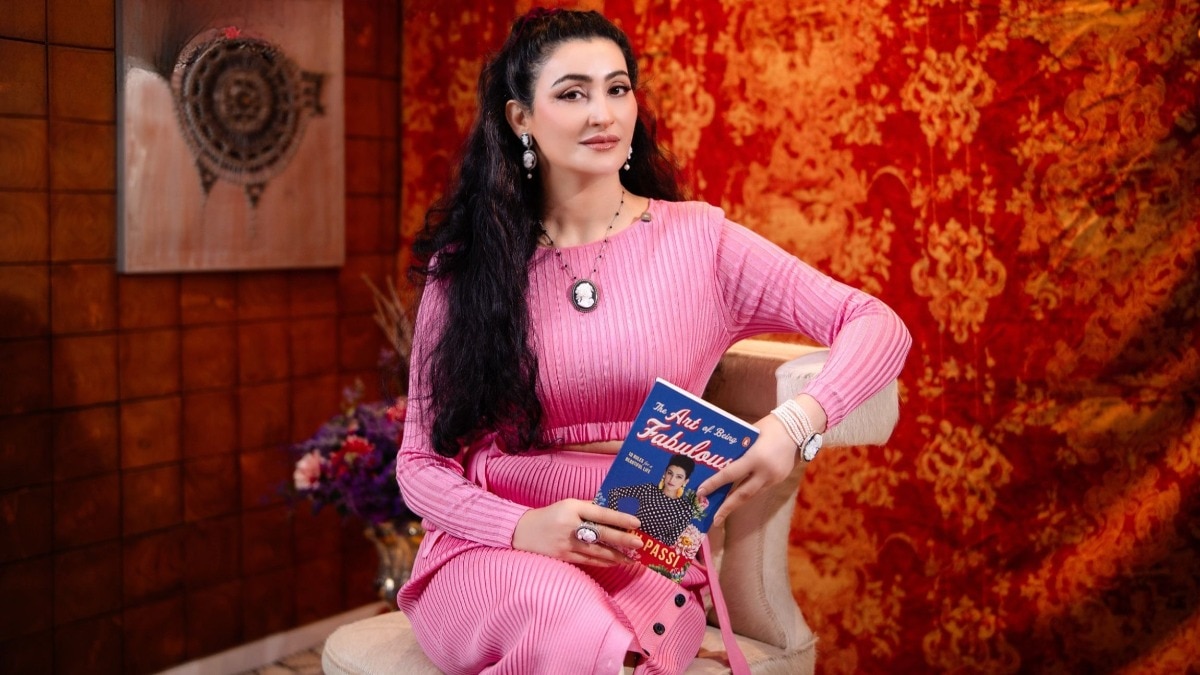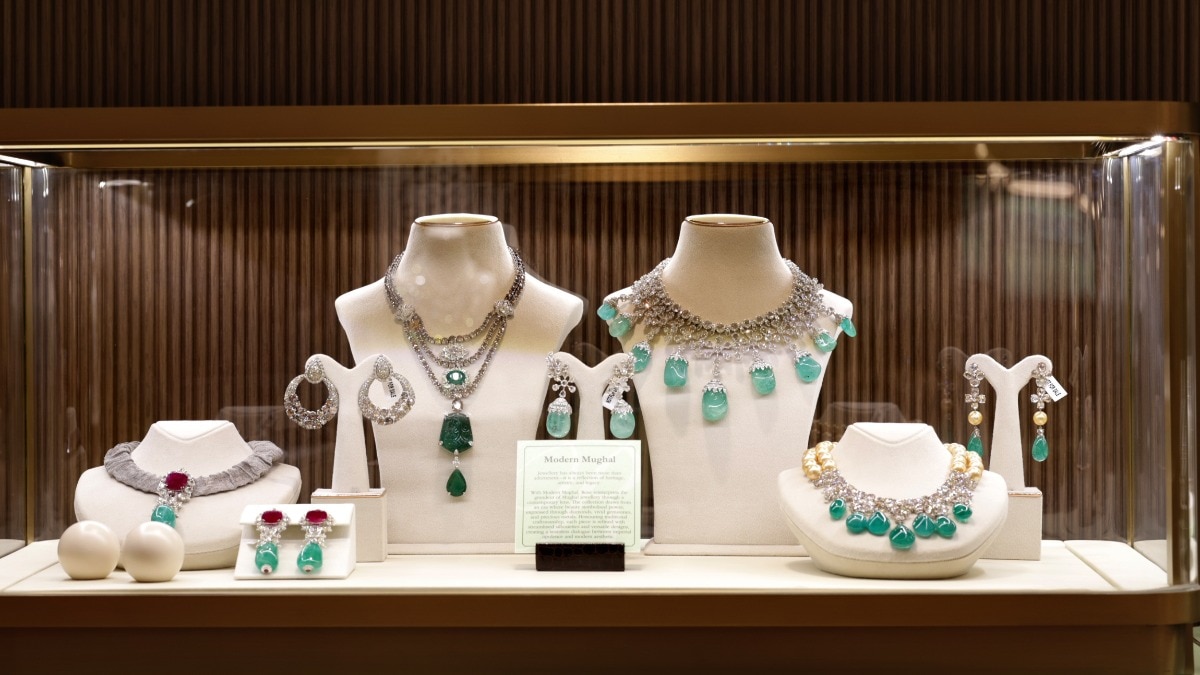
When books become jewels, and the quietest luxury is book wealth
As every book collector knows, “book wealth” trumps “bookshelf wealth”, and it’s more for your contentment than the world’s judgment.


Books are so much more than the stories they contain. Childhood favourites are pages that carefully hold a version of you within their pages like a pressed flower. Books you discovered as an adult take the notions you already hold, and then either dismantle them or refine them. The simple pleasures of choosing a book from your shelf, the soft rustle of pages, and a deep inhale of that inimitable scent of books, whether new or old, are the sacred hallmarks of wealth for every book collector.
An interior-decorating trend, bookshelf wealth, has set in. It essentially means a curated space featuring a collection of books alongside personal paraphernalia and art. It goes beyond owning books and emphasises how they’re displayed and integrated into the décor. However, long before this became the norm, connoisseurs have been amassing books since time immemorial, and perhaps the real wealth has been a shelf that’s not built for display, but for personal pleasure.
Heirlooms of the mind

I absolutely love thumbing through books that have been in my family for generations. Paper warmed by sunlight, and read with the moon, offers quiet contemplation, as I think of ancestral endurance. From notebooks filled with handwritten recipes to cherished novels passed down through generations. As a book aficionado myself, I often wonder what it is about books that has such a gleaming appeal. For the nostalgic, they’re windows into the worlds of the past, for the forward-thinking, they’re blueprints of what has worked, sustained, and even thrived.
Choosing what we read and put on our bookshelf today will decide what our future generations read. Inheriting a bookshelf filled with treasures is perhaps one of the loveliest gifts. We are stewards of a sort, carefully preserving knowledge for generations to come. Personal libraries reflect the myriad interests held by a human—from works on gastronomy to travel and philosophy. And when the collection is added to by each generation, they become a map—of curiosities and interests.
Curating aesthetics

Throughout history, books have been the cornerstones of privilege. Libraries have always held sacred importance. In ancient India, the Vedas and Upanishads paved the road towards understanding life and religion. In Florence, illuminated manuscripts were displayed like gemstones in gilded cabinets. The Mughals maintained ateliers of calligraphers to produce hand-painted testaments to their reign.
Today, that aura of reverence is re-emerging, but it’s redefined. Contemporary shelves now hold volumes of Tagore and Tolstoy, overlooking marble-topped desks with Assouline coffee-table books about Yves Saint Laurent and Capri. Interior designers are increasingly being briefed about the cohesive integration of the display with personality. For instance, the shelf could be a selection of colour-blocked covers, a mix of books and objets d’art, complemented by a cosy, low-lying seating with pillows and throws, to invite the reader or beholder into a warm and welcoming ambience. Intimate book corners are becoming a shrine to books, with hidden sliding panels and climate-controlled pods.
Intellectual chic

Despite the era of Kindles and e-reading taking the world by storm, physical books haven’t lost their relevance. In fact, the more our reading has migrated to screens, the more the printed book becomes an object of desire. From purists to debutantes, collecting books has become a luxury, coveted because it’s a rarity. Possessing “book wealth” isn’t merely about owning books, but the stories, histories, and intellectual fingerprints that shape one’s inner life.
In a world that often measures wealth by real estate, jewellery and vintage collectables, it is refreshing to know that subtler forms of affluence exist. Book wealth isn’t ostentatious, but it’s the kind that lingers.
Somewhere in an apartment in Mumbai, late-afternoon sunlight slants into a room. It catches the cover of The Guide by RK Narayan, read and loved across generations. Somewhere in a house in South India, life continues in the spaces that inspired the author to conjure up Malgudi. Books do more than connect faraway places and people; they form an indelible bridge of thoughts, and their worth is far more than their price.
Lead image credit: Lonika Chande
Photo credits: Getty, Assouline
Also read: How I found sleep through nighttime rituals that truly work
Also read: Magical real-life locations that are straight out of the Harry Potter world










